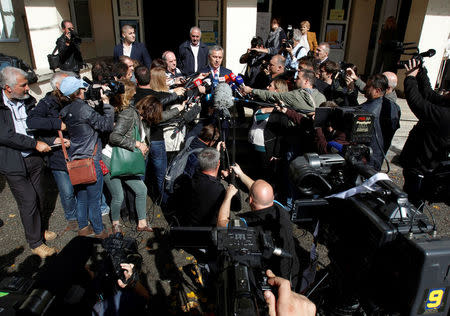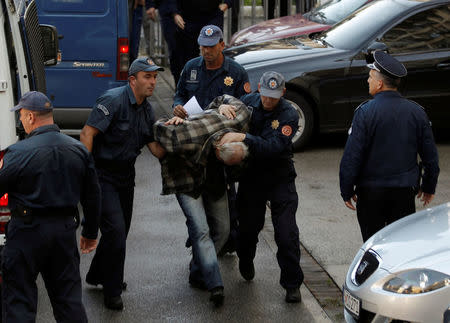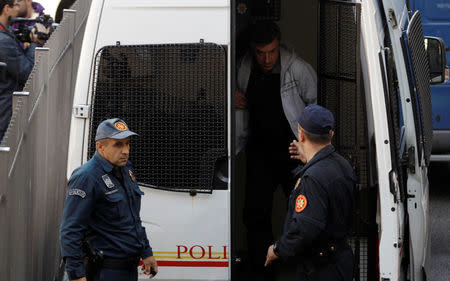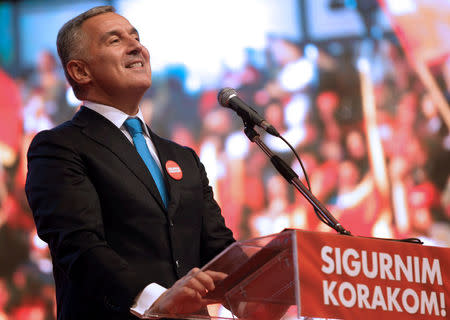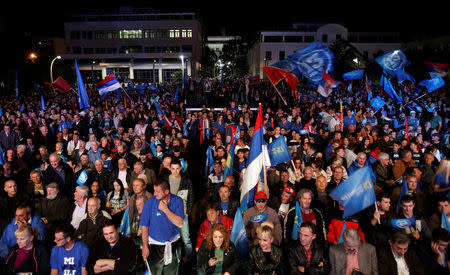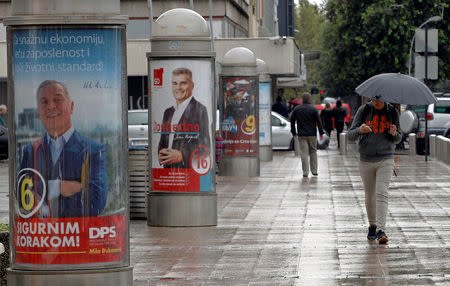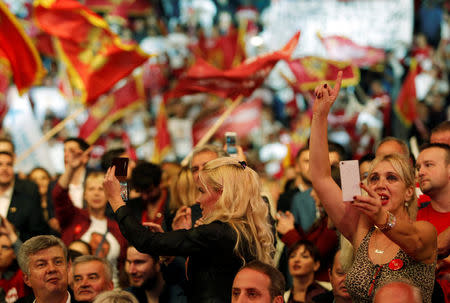Montenegro election inconclusive according to partial count
By Aleksandar Vasovic PODGORICA (Reuters) - The Democratic Party of Socialists (DPS) was in the lead in Montenegro's parliamentary vote on Sunday but looked short of winning a majority, leaving pro-Western Prime Minister Milo Djukanovic needing a coalition to extend his 24 years in power. Djukanovic said the election was a historic choice between closer ties with NATO or with Russia, but voters were divided according to a partial count suggesting he would win 36 seats in the 81-seat parliament, five short of a majority. Montenegrins turned out in record numbers to vote on Sunday amidst allegations of media and party websites being hacked, polling station violence and the arrest of a group of Serbs accused of plotting armed attacks on state institutions and officials. With tensions already high, the likely outcome leaves Montenegro, a former Yugoslav republic of 620,000 people, deeply divided, with its long-serving leader scrambling to build a majority in a fractious parliament. The authorities said 20 people, all citizens of neighbouring Serbia, were arrested overnight, accused of entering Montenegro intending to pick up a cache of automatic firearms with a view to attacking state institutions and officials. With 72 percent of votes counted, pollsters CEMI forecast that the Democratic Forum (DF), an opposition alliance of pro-Western parties and others that want stronger ties with traditional allies in Serbia and Russia, would have 17 seats. Together with other opposition parties and alliances, it could have as many as 42 seats. Party officials from both the DPS and the opposition claimed victory, though DPS looked better-placed to form a government. Djukanovic has said Russia sees the vote as an opportunity to derail the Balkan region's rush towards joining NATO and the European Union, while opposition parties have denied his allegations that they receive Russian funding and have accused him of running Montenegro as a corrupt personal fiefdom. ECONOMY FACES EAST AND WEST Authorities blocked access to mobile messaging services for much of the day amid reports of messages circulating calling on opposition supporters to vote. Media and party websites were also knocked offline by attacks. "Montenegro will continue its stable movement towards European and Euro-Atlantic integration," Djukanovic, 54, said after casting his vote in the capital Podgorica. Supporters say membership will bring peace and prosperity, but the issue is divisive. NATO bombed Montenegro in 1999, when it intervened to stop ethnic killings in Kosovo by Serbia, with which Montenegro was in a state union. Western analysts have long viewed with concern signs of growing Russian influence in Montenegro, with which it shares Orthodox Christian ties. Some diplomats say last year's invitation to join NATO was designed to counter this. But the economy needs close ties to both east and west. It has grown at 3.2 percent a year over the past decade, as foreign investors, especially from Russia, China and Italy poured money into energy, mining and tourism in a country famed for its spectacular mountains and sea coast. Serbian Prime Minister Aleksandar Vucic told reporters earlier on Sunday he had no information about the arrests in Montenegro and declined to comment, the Serbian news agency Tanjug said. (Editing by Thomas Escritt, Greg Mahlich)

 Yahoo News
Yahoo News 
